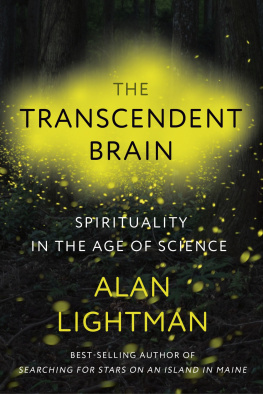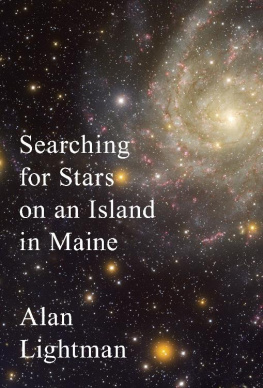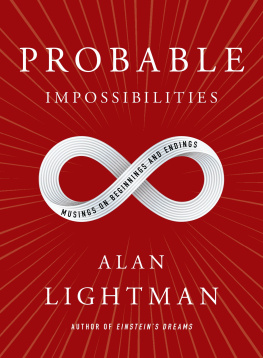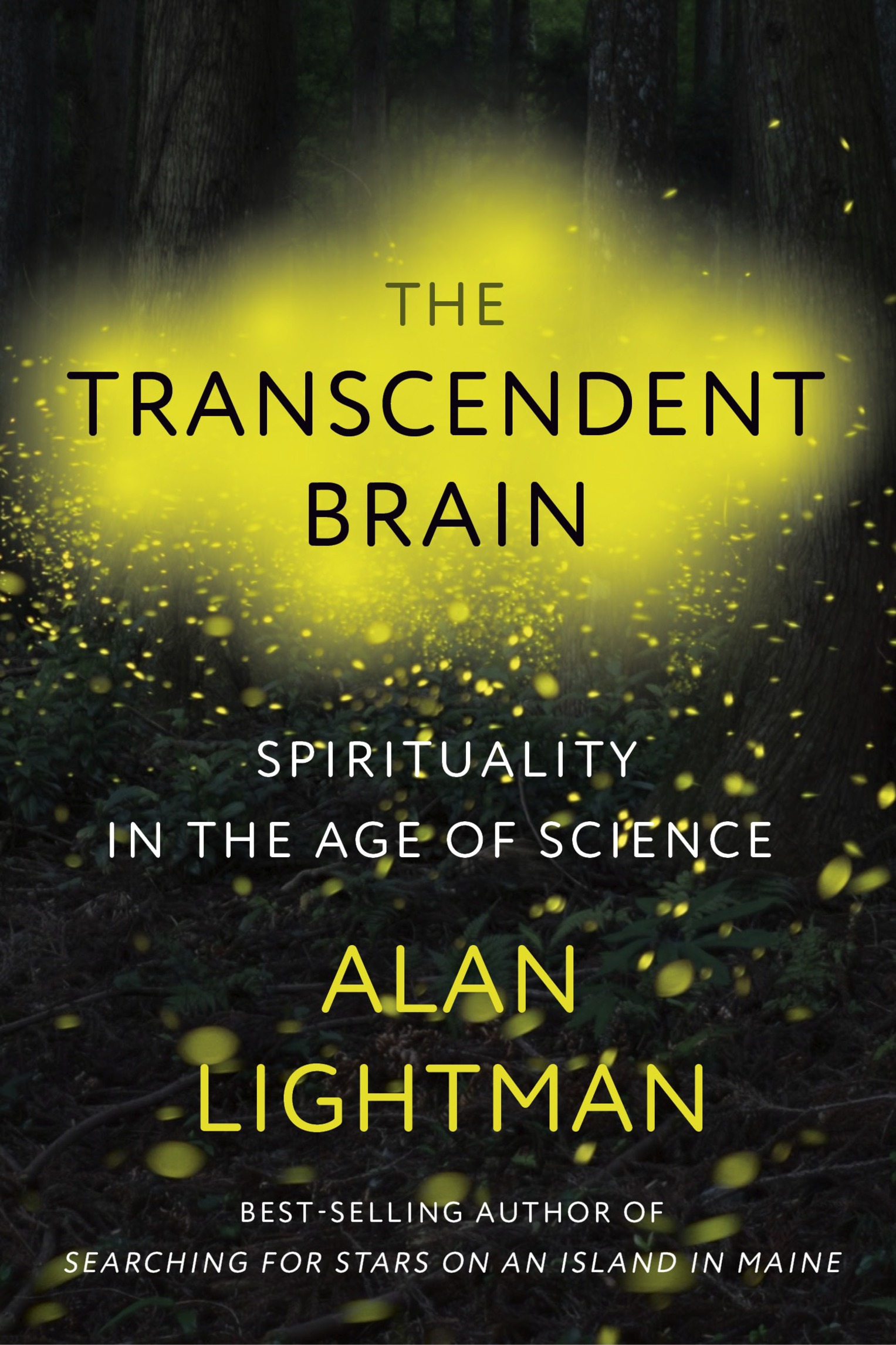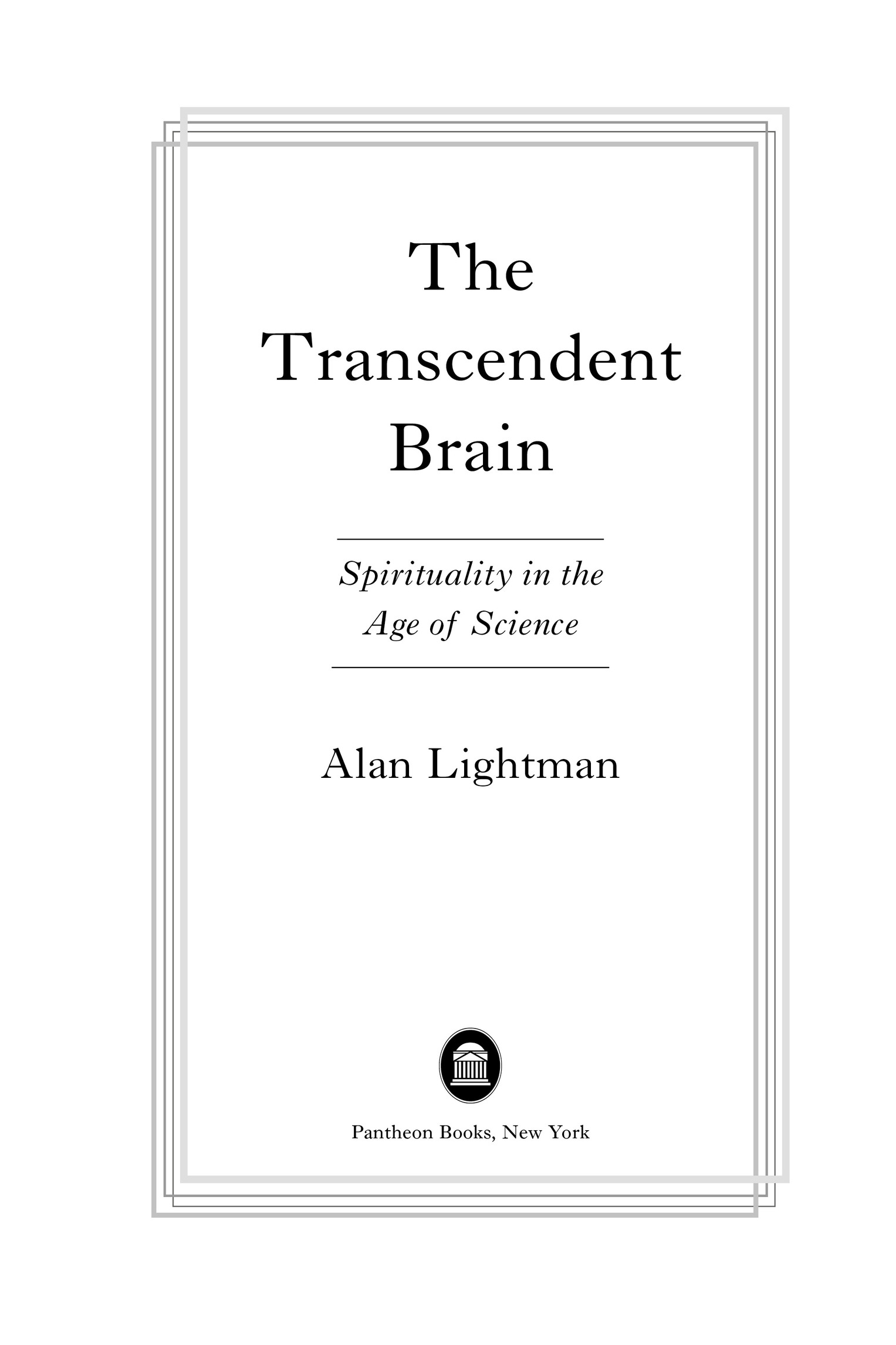Also by Alan Lightman
Probable Impossibilities
Three Flames
In Praise of Wasting Time
Searching for Stars on an Island in Maine
Screening Room
The Accidental Universe
Mr g
Song of Two Worlds
Ghost
The Discoveries
A Sense of the Mysterious
Reunion
The Diagnosis
Dance for Two
Good Benito
Einsteins Dreams
A Modern Day Yankee in a Connecticut Court
Time Travel and Papa Joes Pipe
Copyright 2023 by Alan Lightman
All rights reserved. Published in the United States by Pantheon Books, a division of Penguin Random House LLC, New York, and distributed in Canada by Penguin Random House Canada Limited, Toronto.
Pantheon Books and colophon are registered trademarks of Penguin Random House LLC.
Grateful acknowledgment is made for permission to reprint Sleeping in the Forest, by Mary Oliver, copyright 1978 by Mary Oliver. Reprinted by permission of the Charlotte Sheedy Literary Agency and Bill Reichblum.
A Cataloging-in-Publication record has been created for this book by the Library of Congress.
Library of Congress Control Number: 2022010019
ISBN 9780593317419 (hardcover)
ISBN 9780593317426 (ebook)
Ebook ISBN9780593317426
www.pantheonbooks.com
Cover photograph by Junichiro Tokiyoshi / EyeEm / Getty Images
Cover design by Mark Abrams
ep_prh_6.0_142850161_c0_r0
When Figures show their royal Front
And Mistsare carved away,
Behold the AtomI preferred
To all the lists of Clay!
Emily Dickinson
Contents
A Brief History of the Soul, the Nonmaterial, and the Mind-Body Duality
A Brief History of Materialism
The Emergence of Consciousnessfrom the Material Brain
From Consciousness to Spirituality
Science and Spirituality in the World of Today
_142850161_
Introduction
For many years, a family of ospreys lived near our house on a small island in Maine. Each season, my wife and I observed their rituals and habits. In mid-April, the parents would arrive at the nest, having spent the winter in South America, and lay eggs. In late May or early June, the eggs hatched. As the father dutifully brought fish dinners to the nest each day, the babies would grow bigger and bigger and in mid-August were large enough to make their first flight. Throughout the season, my wife and I recorded all of these comings and goings. We noted the number of chicks each year. We observed when the chicks first began flapping their wings, in early August, a couple of weeks before having the strength to become airborne and leave the nest for the first time. We memorized the different chirps the parents made for danger, for hunger, for the arrival of food. After several years of cataloging such data, we felt that we knew these ospreys pretty well.
Then, one late August afternoon, the two juvenile ospreys of that season took flight for the first time as I stood observing them from my second-floor circular deck. All summer long, they had watched me on that deck as I watched them. The circular deck was about nest high, so to the fledgling birds it must have looked like I was in my nest just as they were in theirs. On this particular afternoon, their maiden flight, they did a wide half-mile loop out over the ocean and then headed straight at me with tremendous speed. A juvenile osprey, although slightly smaller than a full-grown adult, is still a large bird, with powerful and sharp talons. My immediate impulse was to run for cover, since the birds could have ripped my face off. But something held me to my ground. When they were within fifteen or twenty feet of me, the two birds suddenly veered upward and away. But before that dazzling and frightening vertical climb, for about half a second we made eye contact. Words cannot convey what was exchanged between us in that instant. It was a look of connectedness, of mutual respect, of recognition that we shared the same land. It was a look that said, as clear as spoken words, We are brothers in this place. After the two young ospreys were gone, I found that I was shaking, and in tears. To this day, I dont understand what happened in that half second. But it was a profound connection to nature. And a feeling of being part of something much larger than myself.
Im a scientist and have always had a scientific view of the worldby which I mean that the universe is made of material stuff, and only material stuff, and that stuff is governed by a small number of fundamental laws. Every phenomenon has a cause, which originates in the physical universe. Im a materialist. Not in the sense of seeking happiness in cars and nice clothes, but in the literal sense of the word: the belief that everything is made out of atoms and molecules, and nothing more. Yet, I have transcendent experiences. I communed with two ospreys that summer in Maine. I have feelings of being part of things larger than myself. I have a sense of connection to other people and to the world of living things, even to the stars. I have a sense of beauty. I have experiences of awe. And Ive had transporting creative moments. Of course, all of us have had similar feelings and moments. While these experiences are not exactly the same, they have sufficient similarity that Ill gather them together under the heading of spirituality.
I will call myself a spiritual materialist. In 1973, the late Tibetan Buddhist master Chgyam Trungpa coined that phrase to mean someone who has the (false) belief that certain temporary states of mind bring relief from suffering. By temporary states of mind, he was probably thinking of the pleasures of cars and nice clothes and maybe romance. My meaning is different. I believe that the spiritual experiences we have can arise from atoms and molecules. At the same time, some of these experiences, and certainly their very personal and subjective nature, cannot be fully understood in terms of atoms and molecules. I believe in the laws of chemistry and biology and physicsin fact, as a scientist I much admire those lawsbut I dont think they capture, or can capture, the first-person experience of making eye contact with wild animals and similar transcendent moments. Some human experiences are simply not reducible to zeros and ones.
Ill assume that the feelings Ive described occur in the brain, possibly augmented by the complete nervous system. In the view of modern biology, all mental sensations are rooted in the material neurons of the nervous system and the electrical and chemical interactions between them. Considering that assumption, a more specific and perhaps blunt way to phrase our central question is: How can the material neurons in the human nervous system give rise to feelings of spirituality?
In recent years, scientists and others have come to recognize events and processes we call emergent phenomenabehaviors of complex systems that are not evident in their individual parts. A good example is the way that certain groups of fireflies synchronize their flashing. When a bunch of such fireflies first find themselves together in a field on a summer night, each insect in the group flashes at different random times and at different rates, like blinking Christmas tree lights. But after a minute or so, even without a boss firefly giving orders, all the fireflies have adjusted their inner bodies so that they flash on and off in total synchrony. Such collective behavior cannot be understood by the analysis of a single firefly. Similarly, our brains, composed of 100 billion neurons/fireflies, exhibit all kinds of spectacular behavior that cannot be explained or predicted in terms of individual neurons. The concept of emergent phenomena offers a possible understanding of how a purely materialist world can be compatible with complex human experiences.

